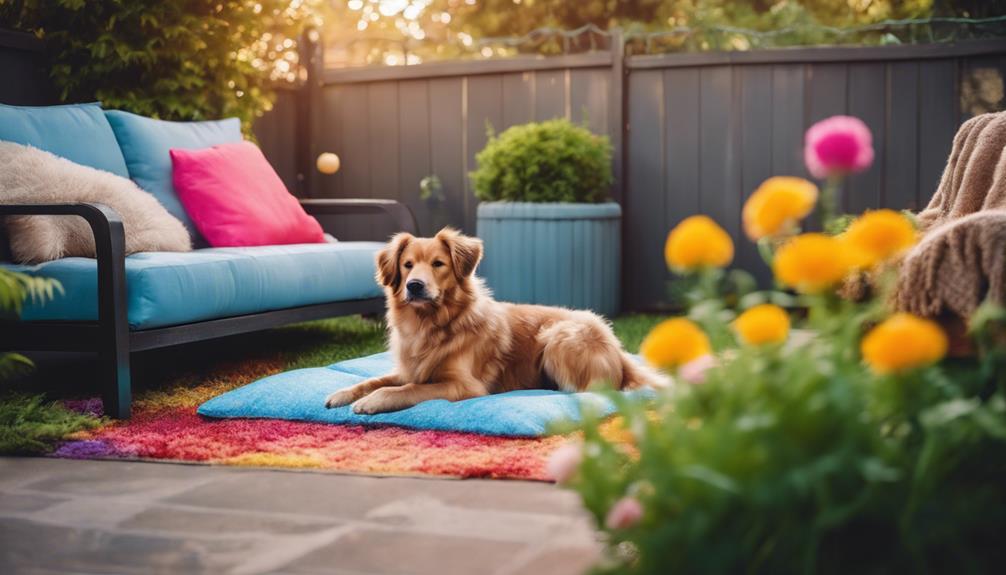Before adopting a Corgi, prospective owners must consider various critical factors to ensure a successful integration of this lively breed into their lives. Evaluating your living environment, understanding the breed's inherent characteristics, and preparing for the associated responsibilities are fundamental steps that cannot be overlooked. Furthermore, financial planning and a commitment to training and socialization are paramount to fostering a well-adjusted pet. As you contemplate these aspects, ponder what specific preparations will make the transition smoother and more rewarding for both you and your future Corgi companion.
Research Corgi Breed Characteristics

Understanding the Corgi breed's unique characteristics is essential for potential adopters to ensure a good match with their lifestyle and expectations.
Corgis are known for their friendly temperament traits, which often include being playful, affectionate, and intelligent. They can form strong bonds with their families and generally get along well with children and other pets.
However, their exercise needs are significant; Corgis require daily physical activity to maintain their health and prevent boredom. Regular walks, playtime, and mental stimulation are crucial.
Adopting a Corgi means committing to an active lifestyle, as these dogs thrive when engaged.
Assess Your Living Situation
Before bringing a Corgi into your home, it's important to evaluate your living situation to ensure it meets the needs of this active and sociable breed.
Corgis require sufficient space to move around and play, making space requirements a key factor in your decision. If you live in a small apartment, consider whether you can provide enough exercise and stimulation.
Additionally, assess lifestyle compatibility; Corgis thrive in homes with active owners who can engage them in daily walks and playtime. They enjoy being part of family activities and can become anxious if left alone for long periods.
Ultimately, a suitable living situation will promote a happy, healthy life for both you and your new Corgi companion.
Prepare Your Home Environment

Creating a safe and welcoming home environment is essential to ensure your Corgi can thrive and feel secure in their new surroundings.
Start with Corgi proofing essentials, which include securing loose wires, removing toxic plants, and storing harmful substances out of reach. This protects your new pet from potential hazards.
Next, establish ideal playspaces for your Corgi. Designate areas where they can play and explore safely, incorporating toys that stimulate their minds and encourage exercise. Consider a fenced yard or a specific room where they can enjoy their time without risking injury.
Lastly, create a cozy resting spot with a comfortable bed and blankets, allowing your Corgi to feel at home and relaxed in their new environment.
Budget for Corgi Ownership
Establishing a budget for Corgi ownership is vital to ensure that you can adequately provide for their needs and maintain their health and happiness over time.
First, consider the initial costs, including adoption fees, which can vary. Regular vet expenses, such as vaccinations and check-ups, should also be factored in. On average, annual veterinary care can range from $300 to $600.
Additionally, food costs for a Corgi can amount to approximately $50 to $100 monthly, depending on the brand and dietary needs. Other expenses include grooming, toys, and training supplies.
Plan for Training and Socialization

Effective training and socialization are crucial components in ensuring that your Corgi develops into a well-adjusted and obedient companion.
Begin training early, using positive reinforcement techniques, which emphasize rewarding desired behaviors rather than punishing mistakes. This method fosters a trusting relationship between you and your pet.
Consider enrolling in a puppy training class, where professional trainers can guide you through various training techniques.
Socialization is equally important; expose your Corgi to different environments, people, and other animals. This exposure helps reduce fearfulness and encourages confidence.
Create a consistent schedule for training sessions, aiming for short, engaging periods that maintain your Corgi's attention.

